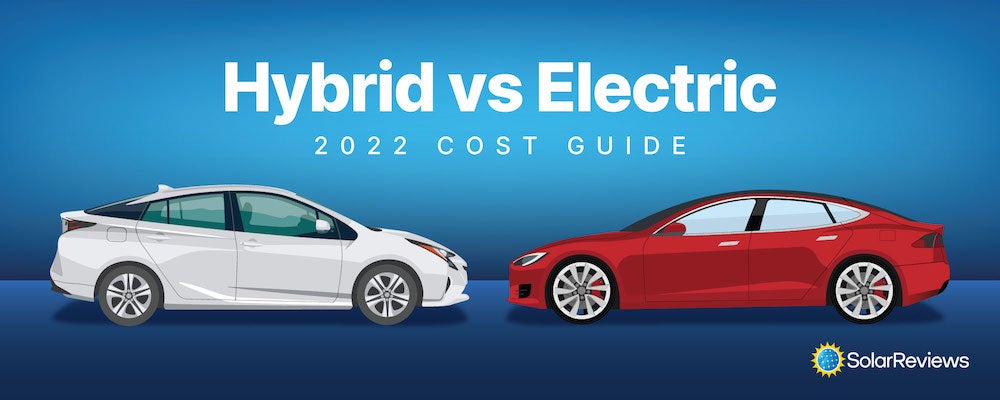As the automotive industry evolves, the debate between hybrid and electric vehicles (EVs) becomes increasingly relevant. With growing concerns about environmental impact and fuel efficiency, many consumers are left wondering: Hybrid Vs. Electric: Which Is Right For You? This article aims to provide a comprehensive overview of both vehicle types, helping you make an informed decision that aligns with your lifestyle and values.
In the following sections, we will delve into the key differences between hybrid and electric vehicles, including their performance, cost-effectiveness, and environmental benefits. You’ll learn about the advantages and disadvantages of each option, as well as the latest technological advancements that are shaping the future of transportation. Whether you’re a daily commuter or an adventurous road-tripper, understanding these factors will empower you to choose the vehicle that best suits your needs.
Additionally, we will explore real-world scenarios and testimonials from drivers who have made the switch to either hybrid or electric vehicles. By examining their experiences, you will gain valuable insights into the practical implications of each choice. So, if you’re ready to navigate the exciting world of eco-friendly driving, keep reading to discover which option is the perfect fit for you!
Understanding Hybrid Vehicles
Hybrid vehicles combine an internal combustion engine with an electric motor, allowing for improved fuel efficiency and reduced emissions. These vehicles can switch between the two power sources, optimizing performance based on driving conditions. This flexibility makes hybrids a popular choice for those who want to reduce their carbon footprint without sacrificing the convenience of traditional fuel sources.
One of the key advantages of hybrid vehicles is their ability to operate on gasoline when the electric battery is depleted. This means that drivers do not have to worry about charging stations, making hybrids particularly appealing for long-distance travel. Additionally, many hybrids come equipped with regenerative braking systems that recharge the battery while driving, further enhancing efficiency.
Exploring Electric Vehicles
Electric vehicles (EVs) are powered entirely by electricity, using large battery packs to drive electric motors. This means they produce zero tailpipe emissions, making them an environmentally friendly option. With advancements in battery technology, modern EVs offer impressive ranges, often exceeding 200 miles on a single charge, which alleviates range anxiety for many drivers.
Charging infrastructure is a crucial consideration for potential EV owners. While home charging is convenient, public charging stations are becoming increasingly available, making it easier to recharge during longer trips. Additionally, many EVs come with features like fast charging capabilities, allowing drivers to recharge their vehicles quickly and efficiently.
Cost Considerations: Hybrid vs. Electric
When evaluating the cost of hybrid and electric vehicles, it’s essential to consider both the initial purchase price and long-term savings. Generally, hybrids tend to have a lower upfront cost compared to fully electric vehicles. However, EVs often qualify for government incentives and tax credits, which can significantly reduce the overall cost.
In terms of operating costs, electric vehicles typically have lower maintenance expenses due to fewer moving parts and no need for oil changes. Additionally, the cost of electricity is often less than gasoline, leading to substantial savings over time. It’s important for potential buyers to calculate their expected driving habits and local fuel prices to determine which option is more economical in the long run.
Environmental Impact: A Comparative Analysis
Both hybrid and electric vehicles offer environmental benefits compared to traditional gasoline-powered cars. Hybrids reduce fuel consumption and emissions, while EVs eliminate tailpipe emissions entirely. However, the environmental impact of battery production and disposal is a critical factor to consider, especially for electric vehicles.
Life cycle assessments show that while EVs have a higher carbon footprint during manufacturing, they often offset this through lower emissions during operation. As renewable energy sources become more prevalent, the overall environmental benefits of electric vehicles are expected to improve further. Understanding these factors can help consumers make informed decisions based on their environmental values.
Performance and Driving Experience
Performance is a significant consideration when choosing between hybrid and electric vehicles. Hybrids often provide a familiar driving experience, with the added benefit of improved fuel efficiency. They can deliver quick acceleration due to the electric motor’s instant torque, making them enjoyable to drive.
On the other hand, electric vehicles are known for their smooth and quiet operation. The absence of an internal combustion engine results in a serene driving experience, and many EVs offer impressive acceleration and handling. For those who prioritize performance, test-driving both types of vehicles can help determine which aligns better with their driving preferences.
Future Trends in Hybrid and Electric Technology
The automotive industry is rapidly evolving, with significant advancements in both hybrid and electric technologies. Manufacturers are investing heavily in research and development to improve battery efficiency, charging speed, and overall vehicle performance. As technology progresses, we can expect to see more affordable options and increased range for electric vehicles.
Additionally, the rise of autonomous driving technology may influence the future of both hybrids and EVs. As smart technology becomes integrated into vehicles, consumers will have more choices that cater to their lifestyle and driving habits. Staying informed about these trends can help potential buyers make decisions that align with their future mobility needs.
| Feature | Hybrid Vehicles | Electric Vehicles |
|---|---|---|
| Power Source | Combines an internal combustion engine with an electric motor. | Powered entirely by electricity stored in batteries. |
| Fuel Efficiency | Generally better fuel economy than traditional gasoline vehicles. | No fuel consumption; energy efficiency depends on electricity source. |
| Range | Longer range due to the combination of gas and electric power. | Range varies by model; typically less than hybrids but improving with technology. |
| Charging | Does not require external charging; charges through regenerative braking. | Requires charging from an electric outlet or charging station. |
| Maintenance | More complex due to dual power sources; may require more maintenance. | Generally lower maintenance costs; fewer moving parts. |
| Environmental Impact | Lower emissions than traditional vehicles, but still reliant on fossil fuels. | Zero tailpipe emissions; overall impact depends on electricity generation methods. |
| Cost | Typically less expensive than electric vehicles; lower upfront cost. | Higher initial cost, but potential savings on fuel and maintenance over time. |
| Driving Experience | Offers a balance of power and efficiency; can switch between power sources. | Instant torque and smooth acceleration; quiet operation. |
Conclusion
Choosing between a hybrid and an electric vehicle depends on your driving habits, budget, and environmental considerations. If you frequently drive long distances and prefer the convenience of not needing to charge, a hybrid may be the better option. However, if you are looking for a sustainable option with lower operating costs and are willing to adapt to charging infrastructure, an electric vehicle could be the right choice for you.



